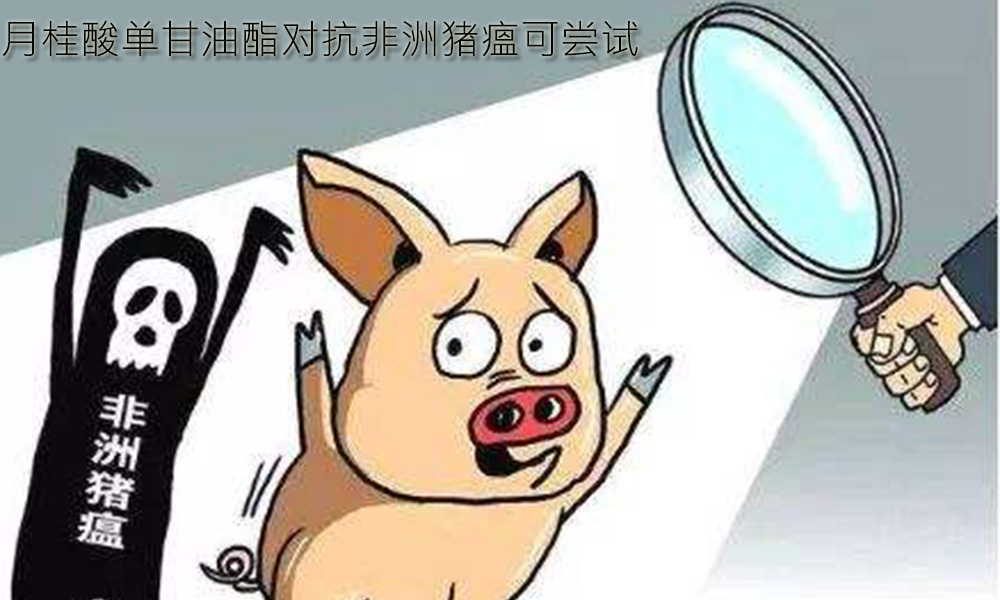
Glycerol Monolaurate (GML for short) is also known as ten Diacrylic acid monoglyceride is a lipophilic nonionic surfactant that naturally exists in breast milk, coconut oil and American palmetto. It can also be obtained by direct esterification of natural lauric acid and glycerin. It is an excellent food. Emulsifier is also a safe, efficient and broad-spectrum bacteriostatic agent with dual functions of emulsification and bacteriostasis.
African swine fever (abbreviation) ASF), as the name suggests, originated in Africa, and is different from the commonly known swine fever. African swine fever is an acute, febrile, and highly contagious infectious disease. The virus has some characteristics similar to those of the Iridoviridae and Poxviridae families. Virus particles have a diameter of 175-215 nanometers, an icosahedron symmetry, and an envelope. The genome is a double-stranded linear DNA with a size of 170-190kb. In pigs, ASFV replicates in several types of cytoplasm, notably reticuloendothelial cells and monocyte-macrophages. It is characterized by a short course of disease, initial onset, and morbidity and mortality rates of up to 100%. The clinical symptoms and damage of this disease are very similar to acute swine fever. The important difference is that a very small number of pigs that have recovered from the disease have extremely weak and short-term immunity. The prevention and treatment of common swine fever serum is ineffective. Pigs with immunity to swine fever are immune to swine fever. There is susceptibility to this disease. No animals other than pigs are susceptible.
Lauric monoglyceride GML is highly safe and is classified as an edible emulsifier in food additive regulations. Its usage is not restricted and has been proven at home and abroad. It has unique effects on antibacterial, antiseptic and anti-inflammatory properties. Studies have also shown that GML has good effects on fighting blue ear virus and has high adaptability to environmental pH. Although there is currently no particularly effective method, it is still worth trying.
The antiviral mechanism of lauric acid monoglyceride is that lauric acid can cause the leakage of viral membrane proteins, and monolaurin monoglyceride can be inserted into the viral envelope. , these effects will lead to the weakening or loss of replication ability. In layman’s terms, monolaurin destroys the membrane structure of the virus and inhibits the virus’s replication ability, which means it puts the virus into a half-dead resting state. At this time, the virus without replication ability acts as an antigen and will stimulate Animals produce corresponding antibodies

 微信扫一扫打赏
微信扫一扫打赏

